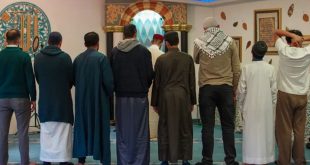When Islam first came into the United States, it surely comprised various ethnicities and minorities. It would be naïve to imagine Islam entered a land and it expressed no ethnic and cultural diversities. Same is true for various Muslim schools. Wherever the origins of early Muslims to America were, minorities of different backgrounds practiced Islam differently.
Available scholarship does not agree on the exact date of Muslim arrival to America. Early Islam in America could have been a Pre-Columbian presence, while some scholars suggested a Columbian, or even a post-Columbian contact. None of the three views discuss the idea of Muslim minorities among early Muslims to America. (West) Africa was the origin to many free and slave Africans who later made it to America. Given the influence of various Muslim dynasties (e.g. Fatimids and Idrisids in North, and later in other parts of Africa), some questions are raised: were there any religious minorities among early Muslims who came (or were brought) to America; when did early Muslims entered America? Contact theories were briefly reviewed to show early presence of Islam in America was multi-faceted. I traced the very first moments of Islam in America from among (west) African slaves. Interestingly, some slaves practiced Islam differently. It was suggested that since not much has been left from early Islam in America, in all probability early Muslims were slaves who did not have the power to establish their presence and practice their religion. Religious differences in early Islam in America seemed to be a matter of culture and choice, of which many Muslims might have been unaware. The paper concluded that the current literature on the history of (Shii) Muslim minorities in America focused on immigrants and did not cover periods of slavery. That might indicate why some scholars opined minorities like Shias came during late nineteenth century.
Bibliographic Information
Title: Early Muslims in America
Author: Abbas Aghdassi
Published in: History and Culture, Number 99 (2017)
Language: English
Length: 13 pages
 Ijtihad Network Being Wise and Faithful Muslim in the Contemporary World
Ijtihad Network Being Wise and Faithful Muslim in the Contemporary World

